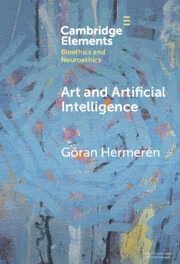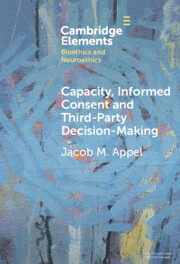About the Editors - Garðar Árnason, Philipp Kellmeyer, Karola Kreitmair
Garðar Árnason is Professor of Philosophy at the University of Akureyri, Iceland. He has published extensively in bioethics and neuroethics, in particular on issues around moral status, animal ethics, ethical issues in neuroscience and genetics, and research ethics, in journals such as the American Journal of Bioethics, AJOB Neuroscience, Science and Engineering Ethics, the Journal of Medical Ethics, and Cambridge Quarterly of Healthcare Ethics. Prof. Árnason has edited and co-edited several books, including Ethics and Governance of Human Genetic Databases: European Perspectives for Cambridge University Press. Since 2019, he has been an editorial board member of Medicine, Health Care and Philosophy. He co-edited a symposium in Cambridge Quarterly of Healthcare Ethics (2023) and a topical collection in the journal Neuroethics (2022–2025).
Philipp Kellmeyer is Assistant Professor for Responsible AI and Digital Health at the University of Mannheim, Germany and a neurologist at the University of Freiburg – Medical Center, where he leads the Human-Technology Interaction Lab. He has published widely in bioethics and neuroethics including on the ethics of neurotechnologies, medical AI, social robots for health, and neurorights, in journals such as Nature, Nature Medicine, Science Robotics, JMIR Mental Health, Neuroethics, and Cambridge Quarterly of Healthcare Ethics. He has also co-edited the Cambridge Handbook of Responsible Artificial Intelligence and is an associate editor at the journal Neuroethics.
Karola Kreitmair is an Associate Professor in the Department of Medical History and Bioethics at the University of Wisconsin School of Medicine and Public Health and an Affiliate Professor in the Department of Philosophy at the University of Wisconsin - Madison. She is the Co-Chair of the UW Hospital and Clinics Ethics Committee and the Co-Director of the Path of Distinction in Bioethics. She is a member of the Association of Bioethics Program Directors and a member of the board of directors of the International Neuroethics Society. She received the 2024 Vilas Award for her work on the moral status of human brain surrogates and a 2025 Wisconsin Partnership Program Collaborative Health Sciences Grant to work on ethical considerations around ambient AI in healthcare. Prof. Kreitmair obtained her bachelor’s degree in philosophy from Brown University, her master’s degree in linguistics from Edinburgh University, and her doctorate in philosophy from Stanford University. Prior to her current position, she served as clinical ethics fellow at Stanford University. She has a broad range of interests, including clinical ethics, philosophy, neuroethics, and playwriting. She has published widely on philosophical, clinical ethics, and neuroethical questions in journals such as the American Journal of Bioethics, Bioethics, the Journal of Medical Ethics, Nature Biotechnology, Hastings Center Report, and the Cambridge Quarterly of Healthcare Ethics. Recent scholarship has included work on AI in healthcare, consciousness and moral status, ethical issues around organ transplantation, and ethical issues arising from in direct-to-consumer digital behavioral technology.







